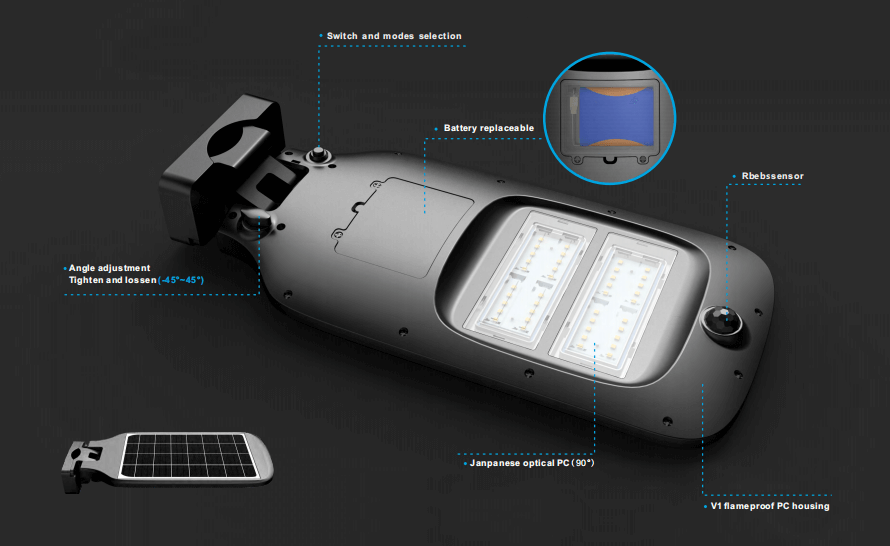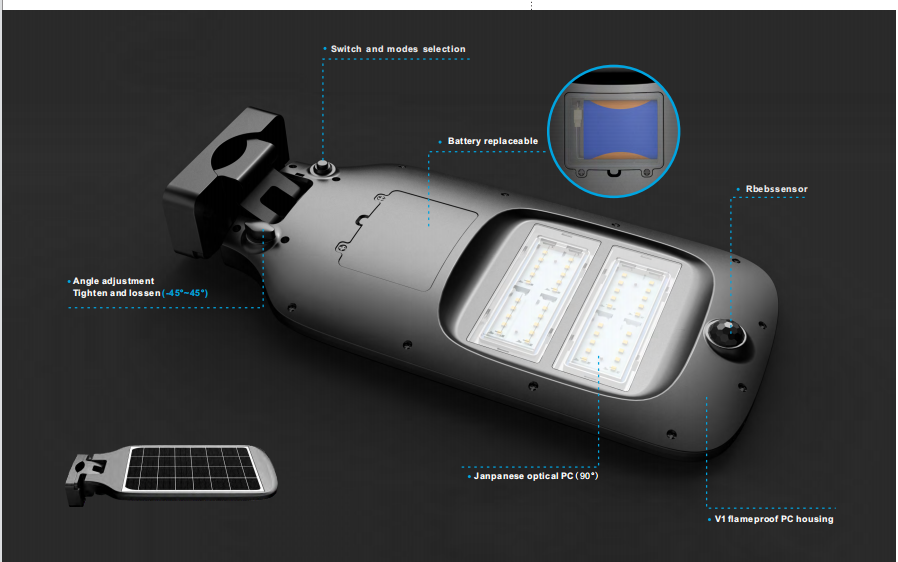
Nowadays, the increasing global emphasis on renewable energy and sustainability has led to the rapid adoption of integrated solar street lights in both urban and rural areas. Their versatility and ease of installation have made them a popular choice for municipalities, businesses, and communities seeking reliable lighting solutions.
Integrated solar street lights have emerged as a promising technology in the pursuit of sustainable and eco-friendly urban lighting solutions. These self-contained lighting systems harness solar energy during the day and utilize it to illuminate streets and public
spaces at night. Unlike traditional street lights that rely on grid electricity, integrated solar street lights operate autonomously, making them energy-efficient and environmentally friendly.
While the numerous advantages of integrated solar street lights are enticing, price considerations play a pivotal role in the decision-making process. Understanding the factors influencing the integrated solar street light price is essential for making informed choices and achieving cost-effective solutions.
integrated solar street light for sale
The core of any integrated solar street light is its solar panel, which is responsible for converting sunlight into electricity. Higher solar panel efficiency ensures maximum energy conversion, leading to more powerful and reliable lighting performance. The integrated solar street light price is directly influenced by the quality and capacity of the solar panels used.
Battery storage is critical to ensure continuous illumination, even during overcast days or nights. Advanced battery technologies with higher storage capacities and longer lifespans may come at a higher cost but contribute significantly to the reliability and longevity of street lights.
LED (Light Emitting Diode) luminaires are known for their energy-efficient operation and long lifespan. The cost of the integrated solar street light is influenced by the efficiency and power rating of the LED fixtures used, as they determine the brightness and coverage area of the lighting.
Integrated solar street lights often come equipped with smart controllers and features such as motion sensors, dimming capabilities, and remote monitoring. These intelligent functionalities optimize energy consumption and enhance the overall performance of the lighting system, but they can also impact the upfront cost.
The durability and longevity of an integrated solar street light depend on the quality of materials used in its construction. Weather-resistant and robust materials can withstand harsh environmental conditions and reduce maintenance costs over the lifetime of the street light.

To comprehend the integrated solar street light price, it's essential to consider the cost breakdown of its components. This includes evaluating the individual expenses of solar panels, batteries, LED luminaires, controllers, and other auxiliary elements that make up the lighting system.
Installation costs encompass the expenses associated with site preparation, mounting the street light, and connecting it to the electrical infrastructure. The complexity of the installation process and the location of the project can impact labor costs.
While integrated solar street lights generally require minimal maintenance, it's crucial to account for potential service and upkeep costs over the system's lifespan. Choosing high-quality components and reliable manufacturers can help reduce maintenance expenses.
Many governments and local authorities offer incentives and subsidies to encourage the adoption of renewable energy solutions like solar street lights. Understanding and utilizing these incentives can significantly offset the initial investment and improve the cost-effectiveness of the lighting project.
When assessing the economic viability of integrated solar street lights, a comprehensive Total Cost of Ownership (TCO) analysis is indispensable. TCO takes into account not only the initial purchase cost but also factors in operational expenses, maintenance, and potential savings in energy bills.
The integrated solar street light price extends beyond monetary considerations. These sustainable lighting solutions contribute to reduced carbon emissions, energy conservation, and enhanced safety in public spaces. Evaluating their positive impact on the environment and society is essential for making well-informed decisions.
The financial payback period indicates the time required for the integrated solar street light investment to pay for itself through energy savings and other benefits. A shorter payback period signifies a more cost-effective and financially rewarding project.
Integrated solar street lights offer a compelling solution to address the lighting needs of modern urban landscapes while promoting sustainability. Understanding the various factors that influence their price is crucial for making informed choices that align with budgetary constraints and long-term objectives. Looking for high-quality solar street lights? Please feel free to contact us at [email protected] to ask for a favorable integrated solar street light price today!